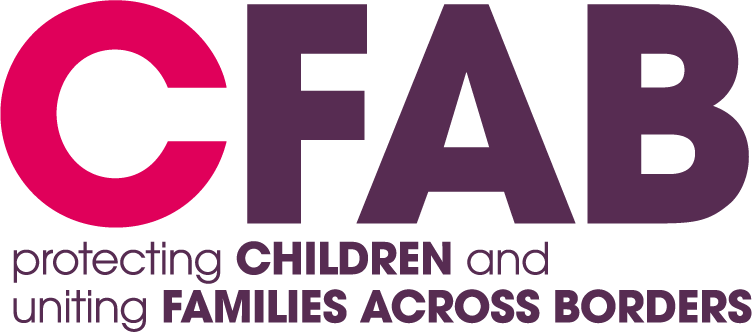Our history
An overview of our history
CFAB’s mission is to use our expertise and experience to ensure vulnerable children and families who are separated across international borders are given care and protection, no matter where they come from. As the only UK charity with a qualified team of international child protection professionals, we are uniquely placed to help children reunite safely with family.
1950s
Known as ISS GB, we help to resettle hundreds of refugees fleeing to the UK and its colonies following the Hungarian Uprising and Chinese ‘Great Leap Forward’, and continue to provide support to British children searching for their foreign servicemen parents after the Second World War.

1960s
In addition to working with refugees from the Bihar famine and Biafran Civil War, ISS GB supports the integration of immigrants arriving in the UK from Africa and the Caribbean.

1970s
With the Asian population expelled from Uganda, ISS GB is responsible for providing resettlement assistance to many of the 27,000 people fleeing to the UK. Support is also provided to refugees from the Vietnam War, including the so-called ‘boat people’. In 1971 ISS GB launches its first Advice Line, making an on-call social worker available to agencies and individuals seeking advice and assistance in protecting vulnerable children.

1980s
ISS GB provides assistance to refugees escaping famine and human rights abuses in Ethiopia and Eritrea, many arriving in the UK without papers.

1990s
Renamed ‘ISS UK’ in 1991, the organisation provides assistance to refugees fleeing the conflict in Yugoslavia and the Rwandan genocide. The Libyan Family Reunion Project is established in 1996 and runs until 2011, supporting British women to visit children who had been abducted by partners and husbands.

2000s
Workload increases due to conflicts in the Middle East and increased migration. By the end of the decade we are working with over 100 countries worldwide. The organisation changes its name to ‘Children and Families Across Borders (CFAB)’ in 2009.

2010s
In 2018, CFAB publishes research into international children and family’s cases which reveals that 1 in 4 children in need of protection, who left the UK to be placed with family abroad, continued to be at risk of abuse or neglect, as it was not possible to safeguard them once they had travelled to another country.

2020s
CFAB responds to the global Covid-19 pandemic by rapidly delivering services remotely and developing a Virtual Contact Supervision Service for children to maintain safe contact with family members.
In collaboration with other organisations, we also launch the International Kinship Care Guide, the first of its kind guide designed to minimise the chances of placement breakdown when Looked After Children are sent abroad to live with family. The guide is widely praised for its comprehensive approach to outlining best practice and sharing of expertise.
In collaboration with other organisations, we also launch the International Kinship Care Guide, the first of its kind guide designed to minimise the chances of placement breakdown when Looked After Children are sent abroad to live with family. The guide is widely praised for its comprehensive approach to outlining best practice and sharing of expertise.

In 2023, we launched our Cultural Family Life Library – a series of guides for social workers introducing them to the history and culture of families in diaspora communities in the UK. CFAB initiated this project because serious case reviews have highlighted that social work professionals sometimes require further support to work with families whose culture or religion is unfamiliar to them. Culture-specific training can help inform practice and avoid the risk of inadvertently enabling situations that put some children at risk.
This year, to mark our 70th anniversary, we are launching a bold five-year campaign to raise £5 million in order to protect 20,000 children—ensuring they are safe, supported, and, where possible, reunited with their families.
This year, to mark our 70th anniversary, we are launching a bold five-year campaign to raise £5 million in order to protect 20,000 children—ensuring they are safe, supported, and, where possible, reunited with their families.

